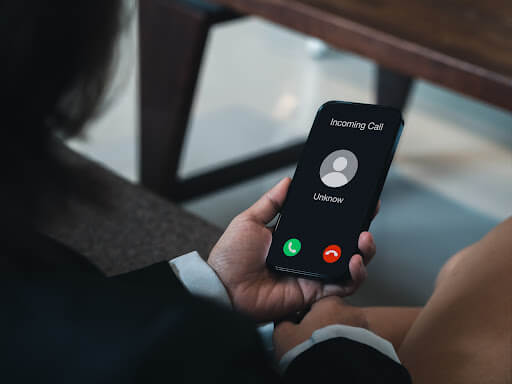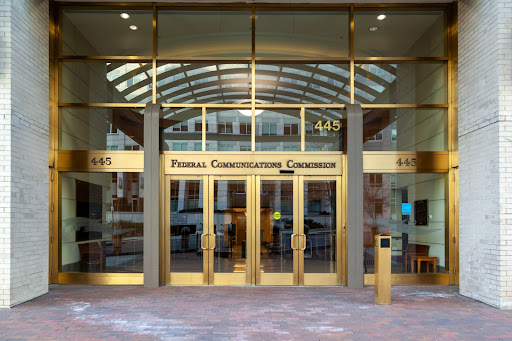Some forms of automatic dialing may be a viable part of conducting business, from following up with customer queries to carrying out necessary steps to collect debts. These legitimate calls may be reported as inappropriate or spam by call recipients which may land you in hot water. But spam or “robocalls” are more than just an annoyance – they can lead to serious legal issues.
The Federal Communications Commission (FCC) strictly regulates how companies may use auto-dialing. Some companies have found themselves embroiled in legal issues from individual and class-action suits that allege illegal and excessive robocalls or solicitations.
The legal team at Griffin Durham Tanner & Clarkson LLC may be able to help you if you’ve found yourself in one of these situations. Contact us today at (404) 891-9150 or (912) 867-9140 to speak with a Georgia business litigation attorney.

What is TCPA?
The U.S. Telephone Consumer Protection Act (TCPA), signed into law in 1991, is an amendment of the 1934 Communications Act (47 U.S.C. § 227). The TCPA prohibits certain types of telemarketing, including automatic dialing programs and using pre-recorded or otherwise artificial voice messages. The Act protects consumer rights and holds companies that violate TCPA guidelines accountable with fines or other penalties.
Solicitation calls aren’t the only type of automatic dialing phone calls prohibited or limited under the TCPA. Certain collections actions by phone are also limited under the Act. Consumers who are harassed or bothered by repeated phone calls from “robo dialers” may file a complaint with the FCC.
The FCC implemented certain rules to enforce the TCPA, including developing the 2003 National Do Not Call Registry. Individuals can list their phone numbers on the Registry, which telemarketers, collections agencies, and other companies must abide by.
National Do Not Call Registry
The National Do Not Call Registry removes your phone number from “robocall” eligibility. Consumers can ask the caller or business to stop calling their landline or mobile phone, but this may not always stop the calls. In some cases, it’s hard to determine where the calls originate from and identify who to contact to ask the calls to stop.
When someone registers their phone number on the Do Not Call list, autodialers must cease all calls to that number beginning on the 31st day after registration. That phone number will remain on the registry until the consumer removes it or they’ve given their number to a company.
If someone receives a phone call 31 days or more after placing their number on the Registry, then they may file a complaint against the caller’s company which can result in thousands of dollars in fines.
TCPA prohibitions
The TCPA prohibits telemarketers or collections agencies from contacting people using an auto dialing program or sending automatic, pre-recorded messages to anyone on the Do Not Call Registry. This includes:
- Pre-recorded calls made to residential telephone lines
- Solicitations with customers you don’t have an established business relationship with
- Calling before 8 am local time or after 9 pm local time
In addition, callers must provide the name of the caller, the name of the business or entity, and a phone number where the entity can be reached.
In 2015, Congress amended the TCPA to permit calls to collect government-owned debts (like federal student loans or mortgage debts). However, this provision was struck down in 2020 by the U.S. Supreme Court. Now, federally-owned debts are covered under the TCPA, including auto-dialing collections actions.
TCPA compliance requirements
In addition to following the TCPA guidelines and requirements as it pertains to not calling numbers on the Do Not Call Registry, the use of Automatic Telephone Dialing System (ATDS) software to make phone calls is prohibited for:
- Any emergency line of a hospital, healthcare facility, fire protection agency, doctor or medical service office, poison control center, or law enforcement agency
- Any hospital patient or guest room
- Any long-term care or elder care facility
- Any paging service or mobile radio service
The TCPA also prohibits sending faxes with unsolicited offers or to establishments or private individuals who don’t have an established business relationship with the sender.
Exceptions to TCPA prohibitions
Some businesses or entities are exempt from the TCPA’s do-not-contact regulations, including:
- Political organizations and polling associations
- Survey companies
- Charities or other nonprofit assistance entities
- Informational robocalls (such as from a child’s school or your doctor or bank)
However, individuals with an established business relationship with a company may still be contacted by autodialers for sales or collections purposes.
If a consumer has done business with the seller or telemarketer within the past 18 months or has made an inquiry within the last three months, then the TCPA considers this action as establishing a business relationship.
If a business relationship exists, then the seller is permitted to contact a person using an automated dialer and prerecorded message, including to pursue collections, even if their number is on the Do Not Call Registry.
TCPA enforcement
As part of enforcing the TCPA, the FCC may assess civil forfeiture penalties and other fines on entities that violate the TCPA. There is also a complaints department where consumers can file their own complaints for the FCC to investigate. If your business has received a TCPA complaint, a Georgia business litigation attorney can help defend you.
Why you should hire a TCPA lawyer
Under the TCPA, businesses that engage in robocalling or soliciting people who don’t have an established business relationship with them are in violation of federal law. If proven, defendants can be ordered to pay $500 to $1,500 for each violation.
Several class-action suits have been filed against companies that violated TCPA regulations. In addition to the consumer damages in a TCPA violations case, there are other penalties for entities that violate these federal statutes. Civil penalties for violators include fines of up to $10,000 per call for intentionally violating TCPA robocall laws. This change was enacted in December 2019 as part of the Pallone-Thune Telephone Robocall Abuse Criminal Enforcement and Deterrence (TRACED) Act. The TRACED Act also extended the time the FCC has to investigate complaints to four years.
With fines for some TCPA violations ranging from $500 to $1,500 per call, and others far exceeding that, businesses that find themselves in court based on allegations of TCPA violations can face millions in fines, especially in a class-action suit. Hiring an experienced Georgia business litigation attorney can inform you of potential legal options.
Our TCPA lawyers are here to help
If you have questions about your rights and obligations under TCPA, we can help. Contact Griffin Durham Tanner & Clarkson LLC today in Atlanta at (404) 891-9150 or Savannah at (912) 867-9140 to schedule a consultation.


